German actor
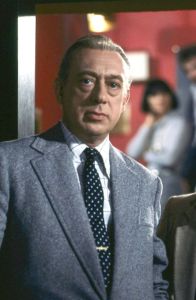 In more recent times, a famous German citizen has been an unfailing guest of the Ligurian Riviera: the actor Horst Tappert, alias Inspector Derrick.
In more recent times, a famous German citizen has been an unfailing guest of the Ligurian Riviera: the actor Horst Tappert, alias Inspector Derrick.
The son of a postman and a housewife, Tappert was born on 26 May 1923 in Elberfeld, then an autonomous municipality (in 1930 it was united with four other neighbouring boroughs to create the town of Wuppertal).
After primary school, he did an apprenticeship in business administration from 1937 to 1940.
However, he interrupted his training in 1940, at the age of 17, when he was called up for compulsory military service in the Wehrmacht.
In the meantime, World War II had broken out and Tappert joined the Waffen-SS, where he was classified as a grenadier with the rank of SS-Schütze (the lowest in the hierarchy). He was initially employed in an anti-aircraft unit in Arolsen, before being transferred to the 3rd SS-Panzerdivision "Totenkopf" stationed in Russia in 1943.
His comrade in the latter case was the author Herbert Reinecker, who later created the Derrick series.
In the post-war period, Tappert remained very reserved when asked about his life during the Second World War, denying that he had ever served in a combat role. In a 1998 interview, he confirmed that he had served in Russia, but claimed to have done so as an engineer in a road-building unit, before being trained to become a company nurse.
After the end of the war, he was interned as a prisoner of war in Seehausen in 1945, after which he worked for some time as a farmhand in the fields for a family in Packebusch.
After his return as a free citizen, he started his acting career almost by chance. He applied for a job as an accountant at the newly opened Altmark Theatre in Stendal (Saxony-Anhalt). He ended up having an interview with the artistic director who convinced him to pursue an acting career.
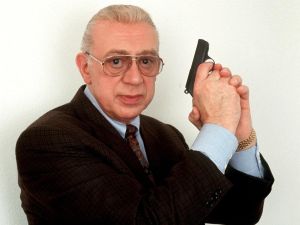 In 1946, he began taking acting lessons from Paul Rose, under whose aegis he gained his first experiences in Köthen and at the Landestheater Württemberg-Hohenzollern.
In 1946, he began taking acting lessons from Paul Rose, under whose aegis he gained his first experiences in Köthen and at the Landestheater Württemberg-Hohenzollern.
In 1947, Tappert also worked in Tübingen for the Interessengemeinschaft Freilichtspiele theatre company co-founded by Elisabeth Noelle-Neumann. He then performed at the Göttingen City Theatre (1949-1950), the Kassel Staatstheater (1950-1951) and the Bonn Theatre (1951-1953), then at the Städtische Bühnen in Wuppertal and finally in 1956 at the Münchner Kammerspiele.
From 1967 Tappert worked as a freelance actor.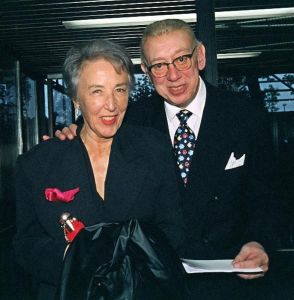 The transition from theatre to film and television was facilitated by his theatrical experience.
The transition from theatre to film and television was facilitated by his theatrical experience.
After being divorced twice, he lived with his third wife, Ursula Pistor, just outside Munich in Gräfelfing from 1957 onwards: he had three children from the various marriages.
He used to alternate this residence with periods of stay in the house he also owned in Norway, on the island of Hamarøy: built on land donated to him by the mayor on a hunting and fishing reserve (an activity he was very fond of), located beyond the Arctic Circle, the actor went there for two months a year, enjoying the solitude and silence of the ice.
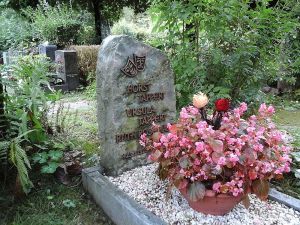 Suffering from diabetes, Tappert died on 13 December 2008 at the age of 85 in a clinic in Planegg; he was buried in the Gräfelfing cemetery.
Suffering from diabetes, Tappert died on 13 December 2008 at the age of 85 in a clinic in Planegg; he was buried in the Gräfelfing cemetery.
Tappert's famous television series as Inspector Derrick, conceived by Herbert Reinecker who remembered his comrade-in-arms, ran from 1973 until 1998 for 281 episodes and aired in over 120 countries in addition to Germany: he was, without a doubt, the most famous German TV inspector in the world.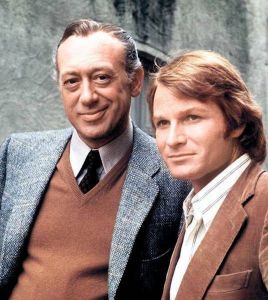
From the mid-eighties until the nineties, Tappert was a regular visitor to western Liguria. Often the guest of German friends who had bought a semi-detached villa in San Martino in Dolcedo, in the Imperia hinterland, over the years he was seen strolling and shopping, in the company of his wife Ursula Pistor (his third wife married in 1957), even in the streets of Imperia, Sanremo and Bordighera: among other things, he was made an honorary citizen of the city of palm trees.
(sources: Wikipedia; notes taken from "La colonia tedesca a Sanremo e in Riviera", Alberto Guglielmi Manzoni, pages 161-173 in the book "Sanremo e l'Europa, l'Immagine della Città tra Otto e Novecento" edited by Letizia Lodi; published by Scalpendi, 2018)




